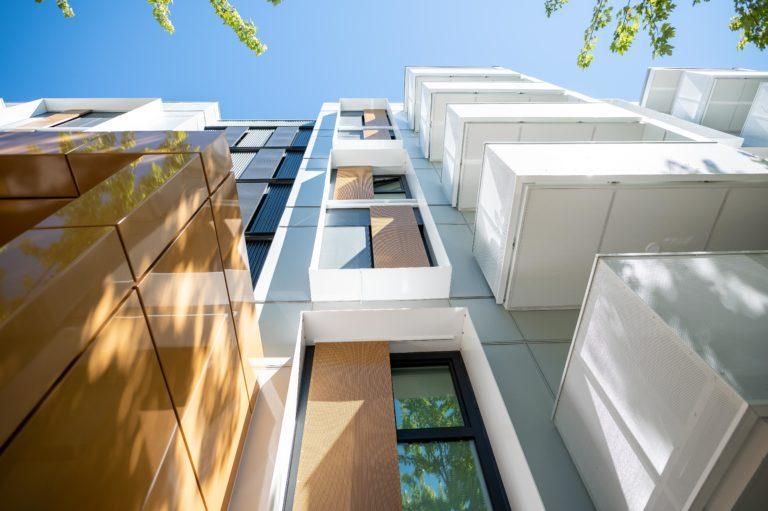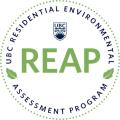

About REAP
REAP is UBC’s mandatory green building rating system, created to address the unique conditions of neighbourhood growth on UBC’s campus and implement requirements that are best suited for our local context. All new residential buildings in the neighbourhoods must meet sustainability standards such as reduced carbon impact, improved energy efficiency, thermal comfort under future climate conditions, air filtration systems to protect from wildfire smoke and other pollutants, resilient landscapes that support biodiversity, and more.
REAP uses a flexible system that emphasizes overall performance over prescriptive rules and allows developers to achieve points from a menu of optional credits. This gives designers and builders more freedom to find cost-effective ways to meet sustainability goals.
All new buildings must achieve a minimum REAP gold certification by earning at least 50 out of 110 points using optional credits in the following component areas:
- Energy & Emissions
- Climate Adaptation
- Materials & Resources
- Water
- Biodiversity
- Place & Experience
- Health & Wellbeing
- Quality
- Innovation & Research
REAP History
When the planning process for the residential neighbourhoods began in 2001, no green building rating system existed that could be applied to multi-unit residential building types planned for the University. UBC Properties Trust, UBC Architecture professor Dr. Ray Cole and his students, Campus & Community Planning, and Campus Sustainability worked collaboratively to develop REAP. The program is similar to the US Green Building Council’s LEED® Green Building Rating System and has evolved to implement UBC’s sustainability policies for buildings as they develop over the years.